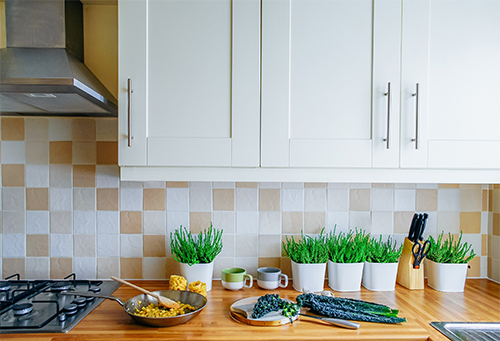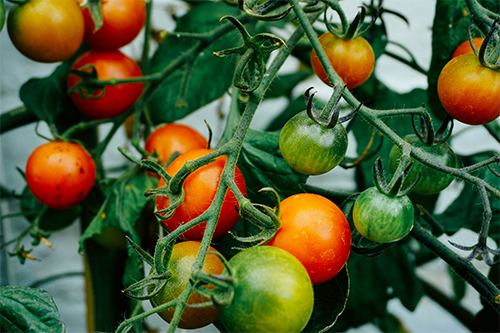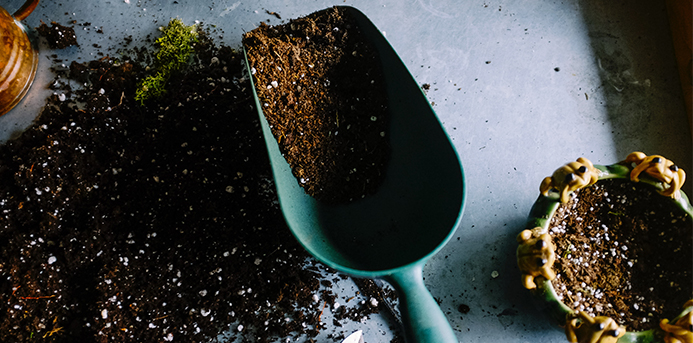While the benefits of eating organic and shopping local are widely known, it’s just as important to dispose of your food waste in an environmentally conscious way. Fourteen million tons of waste end up in Illinois landfills every year, and food waste accounts for 20 percent of that, which is more than any other waste. Decomposed food waste produces methane, a powerful greenhouse gas that is 25 times more harmful than carbon dioxide and adds to earth’s global climate crisis.
So, what’s the best way to handle food scraps and green waste at home so they stay out of the landfill? Here are some tips on how to turn your food waste into something that will benefit not only the environment but also your garden, and get you on a cleaner, greener path.

1. It all starts in the kitchen.
Before you begin your composting journey, you will need a kitchen food compost container, available online or at home improvement stores (check out some stylish options here). Instead of throwing food waste into your garbage, simply place compostable scraps into your airtight bin.
2. Follow this cheat sheet.
What can be composted? List acceptable food scraps near the container or post on the fridge for a quick reminder.
THE YES LIST: Fruits and vegetables (skins, seeds, and pits), seafood bones and shells, grains, bread, eggshells, dairy (cheese, butter, and yogurt), meat and bones and congealed grease (in a paper container), paper napkins, paper towels, uncoated paper plates (no surface sheen), greasy pizza boxes, coffee grounds and filters, paper tea bags, paper bags, newspaper, shredded bills, yard trimmings, and untreated wood are all good to go.
3. Take it outside.
Dump your container’s contents into your outdoor composting bin daily to avoid smells and household pests. If you don’t have a need to turn this waste into soil for your garden, most cities, including Chicago, offer private or public pick-up services or drop-off collections.

4. Help your garden grow.
Instead of buying compost for your garden, why not make it year-round? Backyard composting is a bit of a science, but the proper container can make it an easy process. If you continue to add your compost-approved kitchen and garden scraps to this outdoor container, eventually you will have nutrient-rich garden soil that will nourish your vegetables and fruits. The University of Illinois-Extension has some helpful tips here.
Feature photo by Neslihan Gunaydin on Unsplash.
A version of this article originally appeared in Marin Magazine.
More from Make It Better:
- Plastic Straws Are Wreaking Havoc on Oceans and Marine Wildlife: Skip the Straw or Try These Sustainable Alternatives
- 7 Eco-Champions Bringing Positive Change and Sustainability to Chicago and Beyond
- Look Inside This Stunningly Stylish and Sustainable Wilmette Home
 Macaire Douglas lives in Chicago with her husband and two sons. She proudly supports Share Our Spare, a local nonprofit that collects goods for children in need.
Macaire Douglas lives in Chicago with her husband and two sons. She proudly supports Share Our Spare, a local nonprofit that collects goods for children in need.

